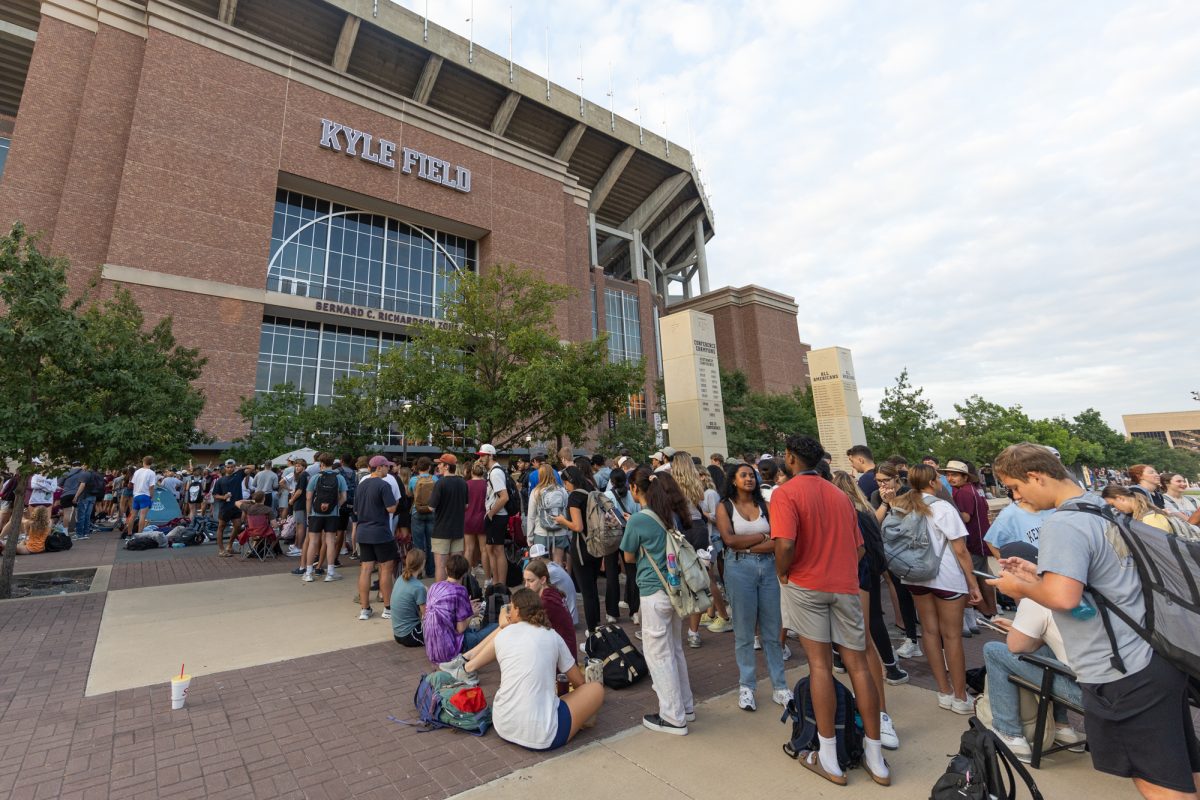I’m what people would call a “military brat.” I was born in a little town called Bedford in England, within driving distance of the nearby United States Air Force base where my dad was stationed in 1993.
On Sept. 11, 2001, I watched my dad pack a bag and place it by the door, just in case “duty called.” Luckily for my little sister and me, it never did. But I developed a whole new respect for him after seeing him pack that bag — the looming orange duffel bag by the door meant he didn’t need to be asked twice to be ready to go if needed.
After my sophomore year of college, my dad had three daughters in college, two sons in private school and taxes to pay, so he asked me to make a trip to the Financial Aid Office to inquire about a Texas legislative act with a weird name — the Hazlewood Act.
The Hazlewood Act is a Texas benefit providing veterans, their spouses or their dependent children with up to 150 hours of tuition exemption at public Texas institutions. To qualify, the veteran must have served at least 180 hours of service, received honorable discharge and must have lived in Texas at the time of entry into active duty.
On Jan. 26, the District Court for the Southern District of Texas ruled unconstitutional the requirement that veterans must have lived in Texas when they enlisted. The judge, Ewing Werlein Jr., argued the provision violated the 14th Amendment’s Equal Protection Clause.
The state’s appeal is pending, but in the meantime the eligibility requirements remain the same.
Public university leaders in Texas are concerned in particular with one ramification of this court ruling — money.
The Hazlewood Act brings with it significant economic implications for public universities in Texas. More than $169 million were waived in tuition and fees due to the Hazlewood Act in 2014, covering around 39,000 recipients, according to the Legislative Budget Board.
Texas university officials argue that if the benefit were to be available to people who were not Texas residents at the time of active duty enrollment, it would cost universities much more than it already does, and it already costs a lot. And that cost grows more each year, even with the residence requirement.
But Werlein Jr. doesn’t think that’s what matters. In his ruling, he wrote, “Texas may not discriminate against its more recent residents in favor of more established residents simply to control costs.”
And I concur. Keith Harris, the plaintiff in this case, joined the army at 18 when he was living in Georgia, but he moved to Texas in 2004 and received his bachelor’s degree from the University of Houston in 2011. He’s been in Texas for more than 10 years. That length of residence, along with his service, should justify him to be more than deserving of receiving the educational benefits Hazlewood has to offer. And I would put my money on the fact that Keith Harris, like my dad, wouldn’t hesitate to be ready to go if called.
The Hazlewood Act was not created to benefit universities. It was created to benefit the people who serve the country. And if benefiting our veterans by allowing them to get an education nearly free of charge means costing public Texas universities some money, so be it.
Veterans deserve support, regardless of boundaries
March 1, 2015
0
Donate to The Battalion
Your donation will support the student journalists of Texas A&M University - College Station. Your contribution will allow us to purchase equipment and cover our annual website hosting costs.








